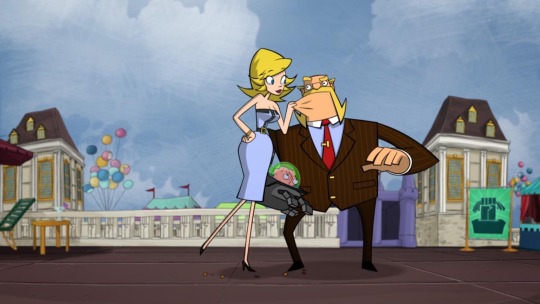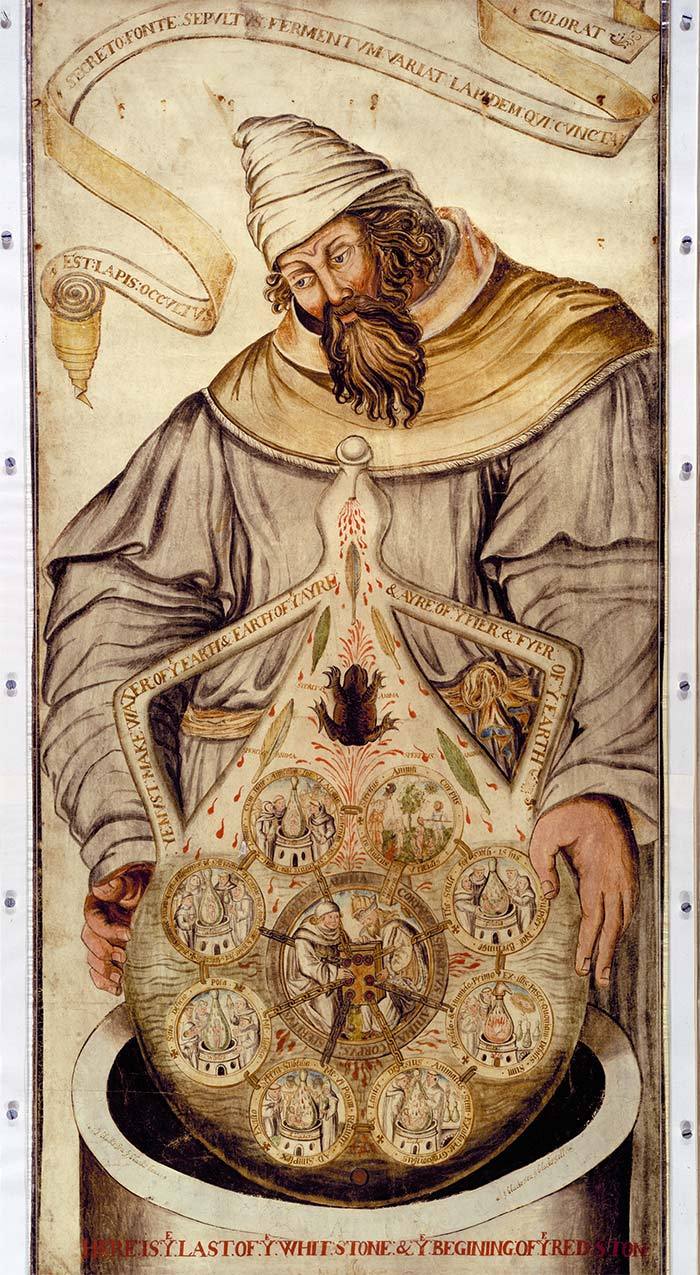#Julian and Viceroy are best characters
Text
I Wish I'd Found the Randy Cunningham Ninth Grade Ninja Fandom
I LOVED that show when it was first coming out. I thought it was just a ton of fun and that characters like Viceroy and Mcfist were genuinely amazing takes on their archtypes. Admittedly, Randy and Howard are entirely classic to me since I grew up with stuff like Danny Phantom and Kim Possible but...
None of you probably know what I'm talking about.
Okay, so a bit over a decade ago now, Disney had a show called Randy Cunningham: Ninth Grade Ninja. The premise was actually kind of Sailor Moon S1 in with half of its villain group. The Ninja exists to oppose the Sorcerer, trapped below the town. The Sorcerer feeds on misery and can corrupt people who are vulnerable through items and the like that they hold dear, turning them into monsters who are usually beat either by destroying the object or convincing the person to give up their grievance.
The other half of the main villains (it had a lot of side villains too of course) were the duo of McFist and Viceroy. They employed a lot of robots, mutants, etc. because, well, McFist was so rich as to practicallly own the town and be beloved by all (Think Lex Luthor but bad at hiding it and really shouty) and Viceroy was literally his on staff MAD SCIENTIST! He even graduated second in his year from a mad science university. Or first. Can't remember despite it being a plot point for an episode when a skeleton that the science teacher is... Married to I think? Comes back to life and tries to finish his graduation project that would have made him Valedictorian: A Doomsday Device. After all, if you blow the world, you are indeed the greatest evil scientist apparently.
The show was pretty classic in how it was structured and played thing and when I say classic, I mean it. It had a moral of the episode format, usually taught through ancient ninja rhyme through the book that gave Randy, the main character, his powers: The Ninjanomicon which is a great name. It would also be what helped grant him various ninja tools to beat bad guys, though his main weapon was the ever changing length scarf he had and a sick ass sword.
The show also had a good sense of humor about what it was though. Like the first episode's lesson from the book is that the greatest weapon is within the suit. When Randy gets his ass kicked, he believes it must be trying to tell him to believe in himself, draw in deep and OPE NOPE! It means there's a sword in the suit! Time to get to slicing and dicing!
The downfall of the show for me was the same thing that makes me actually surprised it didn't stick around longer than it did (besides Disney being honestly pretty stingy with seasons for the past decade for its shows): It being formulaic. Eventually, I did get tired of seeing Randy making similar mistakes or do things that felt like he should have outgrown. Sure, his best friend Howard rarely if ever changed and that could pull him down but it still eventually stopped feeling right. The episode that snapped it for me was when Julian (I can't believe I remember his name), the wanna be magician of the school went full supervillain and got real magical powers. It was a neat turn... Predicated on Howard and Randy being complete assholes to someone they'd at least once or twice called friend.
And that is what the real shame of the show for me was. There was a lot you could actually read into and say about the eb and flow of relationships and sometimes even the show had great fun with it. One episode in particular that I loved was when Howard accidentally gets the ninja powers and people like how he showboats while doing it so Randy questions being the ninja. The two guys are cut from the same cloth, best friends for a reason, but the show REALLY highlighted that eventually, a conflict between Howard and Randy was going to come to the head. Why?
Well... Because Randy is just a dumb teenager who wants to be popular. Howard is an asshole. It's not even the first episode that highlights it but every time it gets highlighted, it's a BIG problem for Randy. In this one, Howard is so cruel to a robot, takes his time to mock it so thoroughly that eventually the robot gets corrupted by the sorcerer and all its weaknesses are now strengths and it's damn near unstoppable. I forget how Randy beats it (besides just being better with the powers) but it always stuck out to me as a reminder that Randy WAS a hero, despite his flaws, and that the ninja before him had made the right call choosing him (not sure if we ever got an answer as to WHY Randy got it, though that was by no means necessary.)
It's just the sort of show that I had enjoyed enough that I wish I'd had more people to share in it while I was enjoying it. I could admittedly try going back now and seeing how it is but well... It's a decade old and had protags all about trying to be cool. Danny Phantom used regular, classic tropes for this while Randy actually tried to embrace the fact that stuff like influencers were starting to exist and become more popular so you can probably imagine its sense of humor by that. I wouldn't call it bad but the last time I tried rewatching the first episode, I remember not finding it nearly as charming as I had the first time, let alone as charming as my brain thought it was.
But on that note, I will say possibly one of the least controversial thing I ever have, just to let fellow fans squeal with me: Holy shit was Randy and Baton girl my absolute OTP of the show and I still get all sorts of happy anytime I'm reminded of the two.
And if you're going "Wait, was she a background charact-" NOPE! THEY LITERALLY CALLED HER BATON GIRL! If she ever got an actual name, I don't know it! And god are elements like that why I've never forgotten that show, for good and for ill.
Edit: She was named Theresa in S2. Thank you to the commenter who reminded me!
15 notes
·
View notes
Note
001 RC9GN
001 | Send me a fandom and I will tell you my:
oo yes! it lives in the back of my mind and that's where it's staying
• Favorite character:
First Ninja.
• Least Favorite character:
you’ll probably hate me for this but I want to say, Howard… he was so loud and always angry.. his entire character feels like spite and resentment. I can’t like him at all without slamming my head on the table. but if you like him that’s good for you! even Bash got better character than him…
• 5 Favorite ships (canon or non-canon):
1. Randy x Debbie
2. Randy x Theresa
3. Randy x Julian
4. Theresa x Debbie
5. Theresa x Heidi
Character I find most attractive:

milf
• Character I would marry:
I would love to marry Viceroy and help him with his science work! came for cool ninja, stayed for epic robot designs.
• Character I would be best friends with:
Julian!
• a random thought:

• An unpopular opinion:
I think it’s good they end the show instead of cancelling it! oh and Heidi. best girl in the series.
• My Canon OTP:
McFist x Marci

• My Non-canon OTP:
McFist x Viceroy

• Most Badass Character:
First Ninja
• Most Epic Villain:
hm, Evil Cyborg Julian got epic design.
• Pairing I am not a fan of:
any problematic ships, i guess.
• Character I feel the writers screwed up (in one way or another):
Howard 🤣🤣🤣
• Favourite Friendship:
I really love Randy and Julian’s interaction!
• Character I most identify with:
uhhhh can’t think of anyone

• Character I wish I could be:
Randy! i wanna be a ninja 🥷 Ben Schwartz is cool, and i liked him as Randy.

#yall im sorry but im closing the rb… this post is cringe 😭#rc9gn#randy cunningham 9th grade ninja#ask game#ask
16 notes
·
View notes
Text
Three sentence Randy Cunningham: 9th Grade Ninja fics! Since I had too many links in this three sentence fic post again for the links to survive, these ones have been split off on their own. You can also check out my tumblr fic masterpost, random WIP scenes and snippets, fic ideas, or find me on FFnet and the AO3! Alternatively, take a peek at the fanart and fanfic I’ve been gifted. If you like my work, please consider buying me a coffee. (I write thank you snippets–which could be an expansion of a three sentence fic if you like!)
-|-
Debbie (”competition”) (find an expansion of this idea by @sach216 here)
Julian (”secrets”)
Randy (”revealed”) (continued here)
Randy (”captured”)
Randy (“I wasn’t expecting that, but hey! It works!”)
Debbie and Howard (“Why is it that when I’m with you, this always happens?”)
Randy and Debbie (and Howard) (”protect”)
Miss Wickwhacker (”cat herd”)
Howard and Randy (”bad mood”)
Viceroy, (Ninja) (”skill not luck”)
Debbie, (Randy, Howard) (”God, why must I deal with these idiots”, “comedy”)
Debbie (”fight my own battles”)
Randy and McFist (”anger issues”)
Debbie and Randy (”Debbie/Randy”)
Randy (”Randy is cursed to steal because of the mask”, “Cursed AU”)
Howard and Randy (”Howard is offered a Ninja Mask”)
Howard, (Randy, other) (”Randy lost in the shadow realm”)
Randy (”time to pass on the mantle of the Ninja”)
Howard (and Randy) (”despair”)
Howard and Randy (”father”)
Mort, (Howard, Heidi, Randy) (”parenthood”)
Randy, Miss Wickwhacker (”musical theatre”)
Randy and Theresa (”Randy/Theresa”)
Randy (Theresa) (”first date”, “fowlham”)
Howard (and Randy) (”mind wipe”)
Brent (”lonely”)
Braedon (”disappointment”)
Rachel and Stevens (”lost and alone”)
Amanda Levay/the Sorceress (”purple roses”)
Randy (”graduation”)
Howard and Debbie (”the soup demands violence”)
Viceroy (”crossbody”) | fanart by @imadumdumjewel
Debbie and Randy (”prom”, “Debbie/Randy”)
Debbie and Randy (”first date”, “Debbie/Randy”)
Debbie and Randy (”debate”, “Debbie/Randy”)
Randy and Viceroy (”into the future”)
Randy and NomiRandy (”Randy vs Evil Randy”)
Howard, Randy, Theresa (”Fowlham wedding”)
Theresa, Randy, their kids (”Fowlham”, “children”)
Howard, Theresa, (Debbie, Randy) (”spilling secrets”)
Mort, Heidi, (Howard) (”family squabbles”)
Howard and Randy (”angst”)
Randy, (Theresa, Howard) (”Fowlham”, “red strings” soulmate AU)
Howard and Debbie (”best man blessings”)
Randy and First Ninja (”Ultimate Ninja”)
Debbie and Theresa (“Fowlham”, “at the altar/vows”)
Howard and Debbie (”Weinerkang”, “divorce”) note: still pairing positive
Randy, Flute Girl, (Howard, Theresa, Debbie) (”alumni reunion”)
Viceroy and his mother (”Viceroy’s mother”, father’s death) //grief, past character death
Theresa and Randy (”parents meeting”, “Fowlham”)
Bash and Hannibal McFist (”daddy issues”)
Theresa, Randy, (their daughter) (”bundle of joy”, “Fowlham”)
Heidi (”ego”)
Theresa, Howard, (Randy) (”third wheel”, Fowlham)
Hannibal and Terry (”brothers”)
Randy, (Theresa, Debbie, Howard) (”sleepover”, “Fowlham”)
Theresa (”baton”)
Howard and Randy (”insecurity”)
Theresa, Randy, (Howard, Debbie) (”growing old”, “Fowlham”)
Randy and Debbie (”Debbie and the Mask”)
Debbie (”Debbie’s Ultimate Lesson”)
Randy, Debbie, Howard, (Theresa) (”When did this happen?”)
The Sorcerer (”whole”)
First Ninja (”grieving”)
Randy, Howard, Debbie (”it is on”)
Theresa and Debbie (”not invited”)
Randy (”do or die”)
Howard, Debbie, Theresa (”car”)
Theresa and Randy (”wrinkles”, “Fowlham”)
Heidi (”music”)
Randy (”greatest evil”)
Debbie and Randy (”Kangham”, “right behind you”)
Debbie and Randy (”Kangham”)
Heidi (”university”)
Randy and Debbie (”Kangham”, “just go”)
Randy (Debbie) (”Kangham”, “taken”)
Randy and Debbie (”Kangham”, “caught me”)
Randy and Theresa (”Fowlham”, “compromise”)
Viceroy and Randy (”others”)
Randy, Theresa, Debbie (”Fowlkangham”, “secrets”)
Heidi (”another ninja”)
First Ninja (”ninjas”)
Debbie and Randy (”Kangham”, “first”)
Debbie and Randy (”Kangham”, “please”)
Randy and First Ninja (”others”)
Randy and First Ninja (”unite”)
Randy and Debbie (”Kangham”, “sorry”, “reveal”)
Randy, Theresa, Debbie (”Fowlkangham”, “confession”)
Randy and First Ninja (”unite the others”)
Randy and First Ninja (”the other eight”)
Randy, Debbie, Theresa (”Fowlkangham”, “first date”)
Theresa and Randy (”Fowlham”, “forgive”)
Randy and Theresa (”songs rock”, light Fowlham)
Randy and Theresa (”Fowlham”, “vulnerability”)
Randy and Theresa (”Fowlham”, “childhood encounters”)
Randy and Theresa (”Fowlham”, “unholy crusade” (if this is a thing it is not the thing you recognize because I do not know the thing--so sfw))
Howard and Randy (”Kangham”, “stick”)
Randy, Theresa, their daughter (”Fowlham”, “family trip”)
Randy and Debbie (”Kangham”, “luck runs out”)
Viceroy, McFist, (the Ninja) (blackout)
Randy, Heidi, Debbie, (Howard) (stormbound)
The Nomicon and Randy (”Human!Nomicon AU”, reflections)
#rc9gn#fanfiction#three sentence fics#three sentence fic#fic masterpost#masterpost#my writing#ladylynse#have too many of these to keep in the original post now
25 notes
·
View notes
Text
The English Alchemists
In England, the first known alchemist was Roger Bacon, who was a scholar of outstanding attainment. Born in Somersetshire in 1214, he made extraordinary progress even in his boyhood studies, and on reaching the required age joined the Franciscan Order. After graduating Oxford, he moved to Paris where he studied medicine and mathematics. On his return to England, he applied himself to the study of philosophy and languages with such success that he wrote grammars of the Latin, Greek, and Hebrew tongues.
Although Bacon has been described as a physician rather than an alchemist, we are indebted to him for many scientific discoveries. He was almost the only astronomer of his time, and in this capacity rectified the Julian calendar which, although submitted to Pope Clement IV in 1267, was not put into practice until a later papacy. He was responsible also for the physical analysis of convex glasses and lenses, the invention of spectacles and achromatic lenses, and for the theory of the telescope. As a student of chemistry, he called attention to the chemical role played by air in combustion, and having carefully studied the properties of saltpeter, taught its purification by dissolution in water and by crystallization.
Indeed, from his letters we learn that Bacon anticipated most of the achievements of modern science.He maintained that vessels might be constructed that would be capable of navigation without manual rowers, and which under the direction of a single man, could travel through the water at a speed hitherto undreamed of. He also predicted that it would be possible to construct cars that could be set in motion with amazing speeds (“independently of horses and other animals”) and also flying machines that would beat the air with artificial wings.
It is scarcely surprising that in the atmosphere of superstition and ignorance that reigned in Europe during the Middle Ages, Bacon’s achievements were attributed to his communication with devils. His fame spread through western Europe not as a savant but as a great magician. His great services to humanity were met with censure, not gratitude, and to the Church his teachings seemed particularlypernicious. The Church took her place as one of his foremost adversaries, and even the friars of his own order refused his writings a place in their library. His persecutions culminated in 1279 in imprisonment and a forced repentance of his labors in the cause of art and science.
Among his many writings, there are two or three works on alchemy, from which it is quite evident that not only did he study and practice the science but that he obtained his final objective, the Philosopher’s Stone. Doubtless during his lifetime, his persecutions led him to conceal carefully his practice of the Hermetic art and to consider the revelation of such matters unfit for the uninitiated. “Truth,” he wrote, “ought not to be shown to every ribald person, for then it would become most vile that which, in the hand of a philosopher, is the most precious of all things.”
Sir George Ripley, Canon of Bridlington Cathedral in Yorkshire, placed alchemy on a higher level than many of his contemporaries by dealing with it as a spiritual and not merely a physical manifestation. He maintained that alchemy is concerned with the mode of our spirit’s return to the God who gave it to us. He wrote in 1471 his Compound of Alchemy with its dedicatory epistle to King Edward IV. It is also reported in the Canon of Bridlington that he provided funds for the Knights of St. John by means of the Philosopher’s Stone he concocted.
In the sixteenth century, Pierce the Black Monk, wrote the following about the Elixir: “Take earth of Earth, Earth’s Mother (Water of Earth), Fire of Earth, and Water of the Wood. These are to lie together and then be parted. Alchemical gold is made of three pure soul, as purged as crystal. Body, seat, and spirit grow into a Stone, wherein there is no corruption. This is to be cast on Mercury and it shall become most worthy gold.” Other works of the sixteenth century include Thomas Charnock’sBreviary of Philosophy and Enigma published in 1572. He also wrote a memorandum in which he states that he attained the transmuting powder when his hairs were white with age.
Also in the sixteenth century lived Edward Kelly, born in 1555. He seems to have been an adventurer of sorts and lost his ears at Lancaster on an accusation of producing forged title deeds. Dr. John Dee,a widely respected and learned man of the Elizabethan era, was very interested in Kelly’s clairvoyant visions, although it is difficult to determine whether Kelly really was a genuine seer since his life was such an extraordinary mixture of good and bad character. In some way or other, Kelly does appear to have come into possession of the Red and White Tinctures. Elias Ashmole printed at the end ofTheatrum Chemicum Britannicum a tract entitled Sir Edward Kelly’s Work that says: “It is generally reported that Doctor Dee and Sir Edward Kelly were so strangely fortunate as to find a very Iarge quantity of the Elixir in some part of the ruins of Glastonbury Abbey, which was so incredibly rich in virtue (being one in 272,330), that they lost much in making projection by way of trial before they finally found out the true height of the medicine.”
In March 1583, a prince of Poland, the Count Palatine of Siradia, Adalbert Alask, while visiting the Court of Queen Elizabeth, sought to meet with Dr. Dee to discuss his experiments, of which he became so convinced that he asked Dee and Kelly and their families to accompany him on his return to Cracow. The prince took them from Cracow to Prague in anticipation of favors at the hand of Emperor Rudolph II, but their attempt to get into touch with Rudolph was unsuccessful. In Prague at that time there was a great interest in alchemy, but in 1586, by reason of an edict of Pope Sixtus V, Dee and Kelly were forced to flee the city. They finally found peace and plenty at the Castle of Trebona in Bohemia as guests of Count Rosenberg, the Emperor’s Viceroy in that country. During that time Kelly made projection of one minim on an ounce and a quarter of mercury and produced nearly an ounce of the best gold.

( This is a detail of an English alchemical scroll from the 16th century that provides a pictorial synopsis of alchemical philosophy, depicting the successive processes—through the White Stone, the Red Stone, and the Elixir Vitae—in the production of the Philosopher’s Stone.)
In February 1588, the two men parted ways, Dee making for England and Kelly for Prague, where Rosenberg had persuaded the Emperor to quash the Papal decree. Through the introduction of Rosenberg, Kelly was received and honored by Rudolph as one in possession of the Great Secret of Alchemy. From him he received besides a grant of land and the freedom of the city, a position of state and apparently a title, since he was known from that time forward as Sir Edward Kelly. These honors are evidence that Kelly had undoubtedly demonstrated to the Emperor his knowledge of transmutation, but the powder of projection had now diminished, and to the Emperor’s command to produce it in ample quantities, he failed to accede, being either unable or unwilling to do so. As a result, Kelly was cast into prison at the Castle of Purglitz near Prague where he remained until 1591 when he was restored to favor. He was interned a second time, however, and in 1595, according to chronicles, and while attempting to escape from his prison, fell from a considerable height and was killed at the age of forty.
In the seventeenth century lived Thomas Vaughan, who used the pseudonym “Eugenius Philasthes” (and possibly “Eireneus Philalethes” as well) and wrote dozens of influential treatises on alchemy. Among Vaughan’s most noteworthy books are An Open Entrance to the Shut Palace of the King, Ripley Revived, The Marrow of Alchemy, Metallorum Metamorphosis, Brevis Manuductio ad Rubinem Coelestum, Fone Chemicae Veritatis, and others to be found in the Musaeum Hermiticum. Vaughan came from Wales and his writings were regarded as an illustration of the spiritual approach to alchemy. Yet whatever the various interpretations put upon his work, Vaughan was undoubtedly endeavoring to show that alchemy was demonstrable, in every phase of physical, mental, and spiritual reality. His work Lumen de Lumine is an alchemical discourse that deals with those three aspects. His medicine is a spiritual substance inasmuch as it is the Quintessence or the Divine Life manifesting through all form, both physical and spiritual. His gold is the gold of the physical world as well as the wisdom of the spiritual world. His Stone is the touchstone that transmutes everything and is again both spiritual and physical. For instance, his statement “the Medicine can only be contained in a glass vessel” signifies a tangible glass container as well the purified body of the adept.
Thomas Vaughan was a Magus of the Rosicrucian Order, and he knew and understood that the science of alchemy must manifest throughout all planes of consciousness. Writing as Eireneus Philalethes in the preface to the An Open Entrance from the Collectanea Chymica (published by William Cooper in 1684), Vaughan says: “I being an adept anonymous, a lover of learning, and philosopher, decreed to write this little treatise of medicinal, chemical, and physical secrets in the year of he world’s redemption 1645, in the three and twentieth year of my life, that I may pay my duty to the Sons of the Art, that I might appear to other adepts as their brother and equal. Therefore I presage that not a few will be enlightened by these my labors. These are no fables, but real experiments that I have made and know, as every other adept will conclude by these lines. In truth, many times I laid aside my pen, deciding to forbear from writing, being rather willing to have concealed the truth under a mask of envy. But God compelled me to write, and Him I could in no wise resist who alone knows the heart and unto whom be glory forever. I believe that many in this last age of the world will be rejoiced with the Great Secret, because I have written so faithfully, leaving of my own will nothing in doubt for a young beginner. I known many already who possess it in common with myself and are persuaded that I shall yet be acquainted in the immediate time to come. May God’s most holy will be done therein. I acknowledge myself totally unworthy of bringing those things about, but in such matters I submit in adoration to Him, to whom all creation is subject, who created All to this end, and having created, preserves them.”
He then goes on to give an account of the transmutation of base metals into silver and gold, and he gives examples of how the Medicine, administered to some at the point of death, affected their miraculous recovery. Of another occasion he writes: “On a time in a foreign country, I could have sold much pure alchemical silver (worth 600 pounds), but the buyers said unto me presently that they could see the metal was made by Art. When I asked their reasons, they answered: ‘We know the silver that comes from England, Spain, and other places, but this is none of these kinds.’ On hearing this I withdrew suddenly, leaving the silver behind me, along with the money, and never returning.”
Again he remarks: “I have made the Stone. I do not possess it by theft but by the gift of God. I have made it and daily have it in my power, having formed it often with my own hands. I write the things that I know.”
In the last chapter of the Open Entrance is his message to those who have attained the goal. “He who hath once, by the blessing of God, perfectly attained this Art,” says Vaughan, “I know not what in the world he can wish but that he may be free from all the snares of wicked men, so as to serve God without distraction. But it would be a vain thing by outward pomp to seek for vulgar applause. Such trifles are not esteemed by those who truly have this Art — nay, rather they despise them. He therefore whom God has blessed with this talent behaves thus. First, if he should live a thousand years and everyday provide for a thousand men, he could not want, for he may increase his Stone at his pleasure, both in weight and virtue so that if a man would, one man might transmute into perfect gold and silver all the imperfect metals that are in the whole world. Secondly, he may by this Art make precious stones and gems, such as cannot be paralleled in Nature for goodness and greatness. Thirdly and lastly, he has a Medicine Universal, both for prolonging life and curing all diseases, so that one true adept can easily cure all the sick people in the world. I mean his Medicine is sufficient. Now to the King, eternal, immortal and sole mighty, be everlasting praise for these His unspeakable gifts and invaluable treasures. Whosoever enjoys his talent, let him be sure to employ it to the glory of God and the good of his neighbors, lest he be found ungrateful to the Source that has blessed him with so great a talent and be in the last found guilty of disproving it and so condemned.”
From England, there is also the story of a transmutation performed before King Gustavus Adolphus in 1620, the gold of which was coined into medals, bearing the king’s effigy with the reverse Mercury and Venus; and of another at Berlin before the King of Prussia.
In the same century, Alexander Seton, a Scot, suffered indescribable torments for his knowledge of the art of transmutation. After practicing in his own country he went abroad, where he demonstrated his transmutations before men of good repute and integrity in Holland, Hamburg, Italy, Basle, Strasbourg, Cologne, and Munich. He was finally summoned to appear before the young Elector of Saxony, to whose court he went somewhat reluctantly. The Elector, on receiving proof of the authenticity of his projections, treated him with distinction, convinced that Seton held the secret of boundless wealth. But Seton refused to initiate the Elector into his secret and was imprisoned in Dresden. As his imprisonment could not shake his resolve, he was put to torture. He was pierced, racked, beaten, scarred with fire and molten lead, but still he held his peace. At length he was left in solitary confinement, until his escape was finally engineered by the Polish adept Sendivogius. Even to this dear friend, he refused to reveal the secret until shortly before his death. Two years after his escape from prison, he presented Sendivogius with his transmuting powder.
12 notes
·
View notes